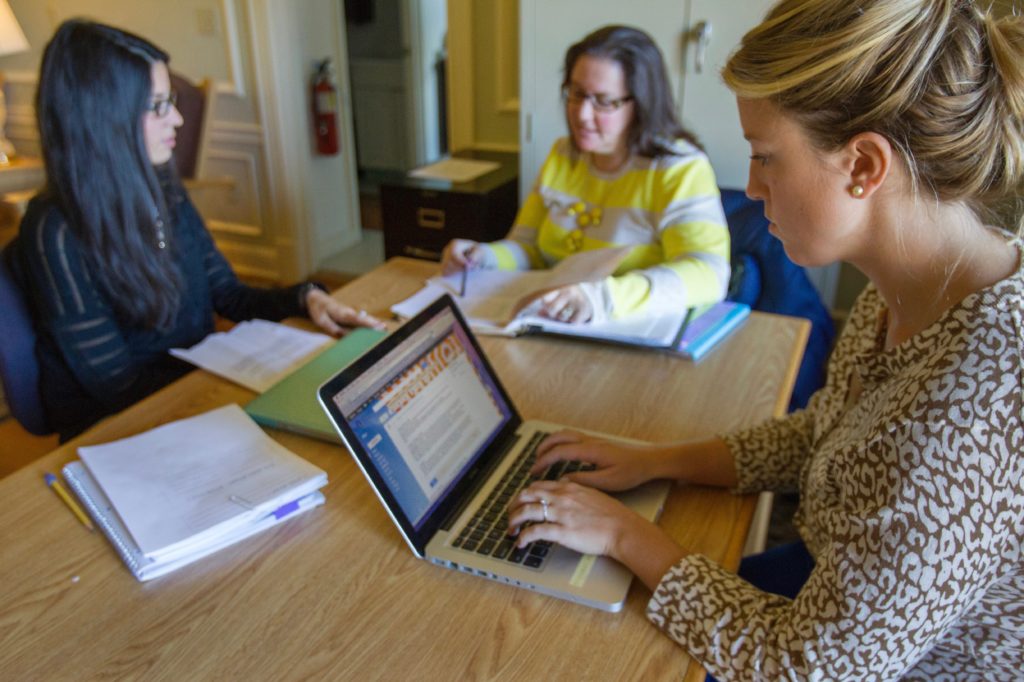Course Credit 15 Hours/PDPs
With an option to add 1 graduate credit from Fitchburg State University
This professional development course provides educators with an overview of language development and second language acquisition with a specific focus on English Learners (ELs). It addresses the distinction between language differences and disorders, with a particular emphasis on language-based learning disabilities (LBLD). As a result of the learning experiences in this course, participants will be more competent in their ability to:
- Identify the federal and state regulations in place to ensure the appropriate evaluation and instruction of students who are dually identified as being ELs and having learning disabilities
- Recognize effective culturally and linguistically appropriate evaluation procedures and assessment measures
- Implement a variety of instructional strategies to support ELs across all content areas using principles from universal design for learning (UDL)
The course is divided into six, self-paced modules over 6 weeks:
- Language Acquisition: This module presents an overview of language acquisition, including specific language parameters (phonology, morphology, syntax, semantics and discourse). It also introduces the typical stages associated with second language acquisition.
- ELs with LBLD: This module identifies common signs of language-based learning disabilities and explains the importance of differential diagnosis for ELs.
- Assessment: This module presents legal regulations that must be considered when evaluating ELs. It also outlines the difference between formal and informal measures and identifies specific tools for evaluation.
- Cultural Considerations: This module explores the importance of getting to know ELs and outlines ways to learn about students’ cultural background and experiences to support academic success.
- Instructional Frameworks: This module outlines specific instructional frameworks, such as Structured English Immersion (SEI), to support ELs in the classroom and explains the difference between social and academic language.
- Instructional Strategies: This module outlines the six Landmark Teaching Principles™ and how the implementation of these instructional strategies can support ELs with LBLD in the areas of listening, speaking, reading, and writing.
Each module will follow the same basic outline:
- Presentation of key information about the topic
- Explanations of the impact in the classroom
- A quiz to assess learning
- Opportunities to discuss and reflect on course content with peers
- A summation of the module followed by an opportunity to complete an application assignment
Specific Assignments:
- Pre and Post-Assessments: These ungraded questionnaires will be completed at the beginning and end of the course in order to self-assess knowledge and application of course content.
- Quizzes: The quizzes will assess comprehension of the content from the required reading. The quizzes will be automatically graded within the course platform. Although participants must earn an 80% or higher to move on to the next section of the course, there are unlimited attempts allowed.
- Discussion Posts: The discussions will require participants to post an initial response and reply to at least one other post.
- Assignments: The assignments in each module will require participants to put theory into practice as they read and follow the specific directions, and use examples provided as a guideline for format, length, and quality of writing. These tasks will be assessed using specific rubrics.
Materials
There is not a required text for the course.
Graduate Credit
There is an option to add one (1) graduate credit to this 6-week course from Fitchburg State University. Graduate credit is optional; the cost is $210 and the non-refundable payment is made directly to Fitchburg. The timeline to opt into graduate credit is firm and cannot be accepted late. Details about the optional graduate credit will be embedded in the “Course Welcome” module of the online course so you can make your final decision at that time.
See our FAQ page for specific information about our online courses.
